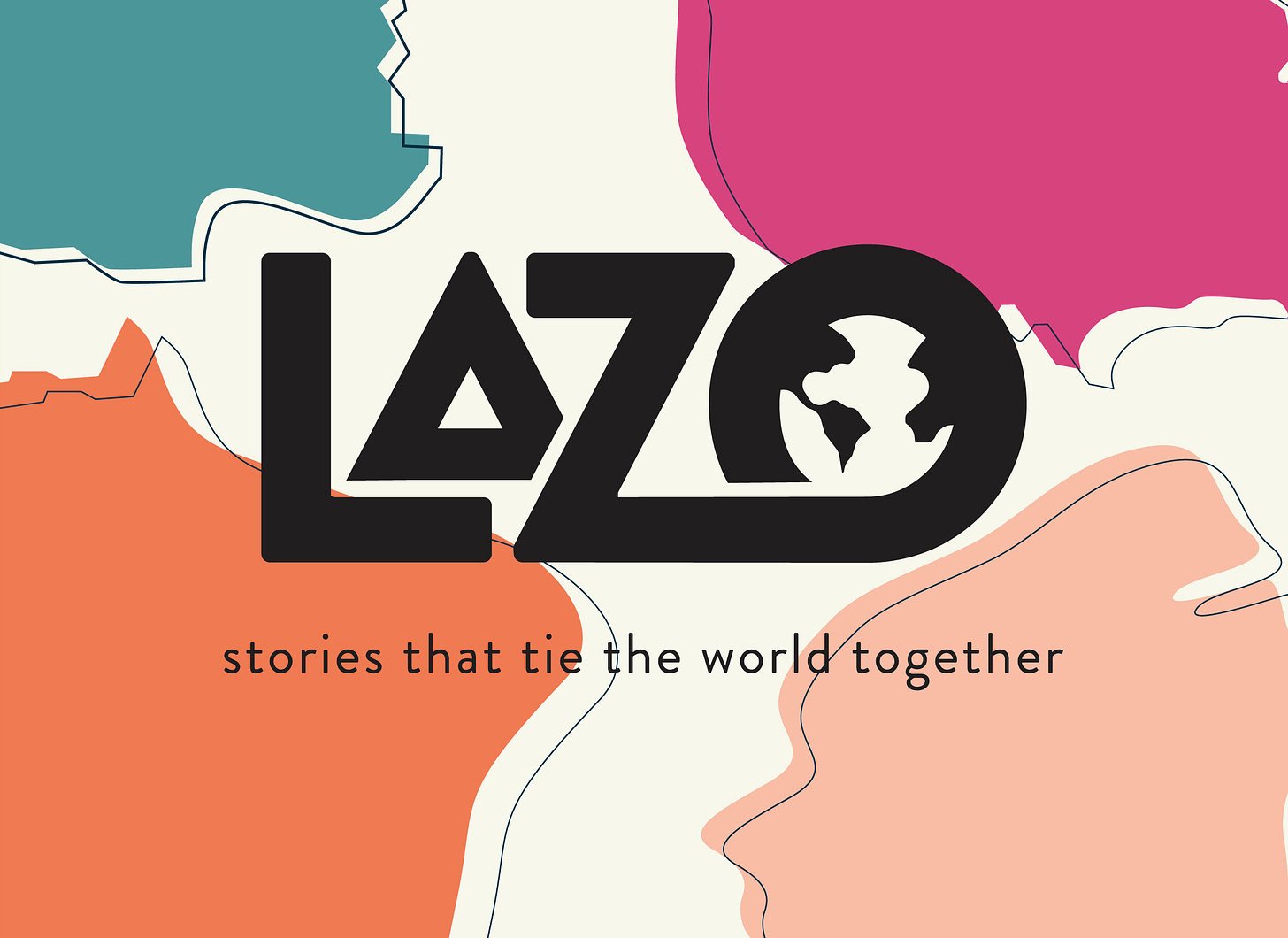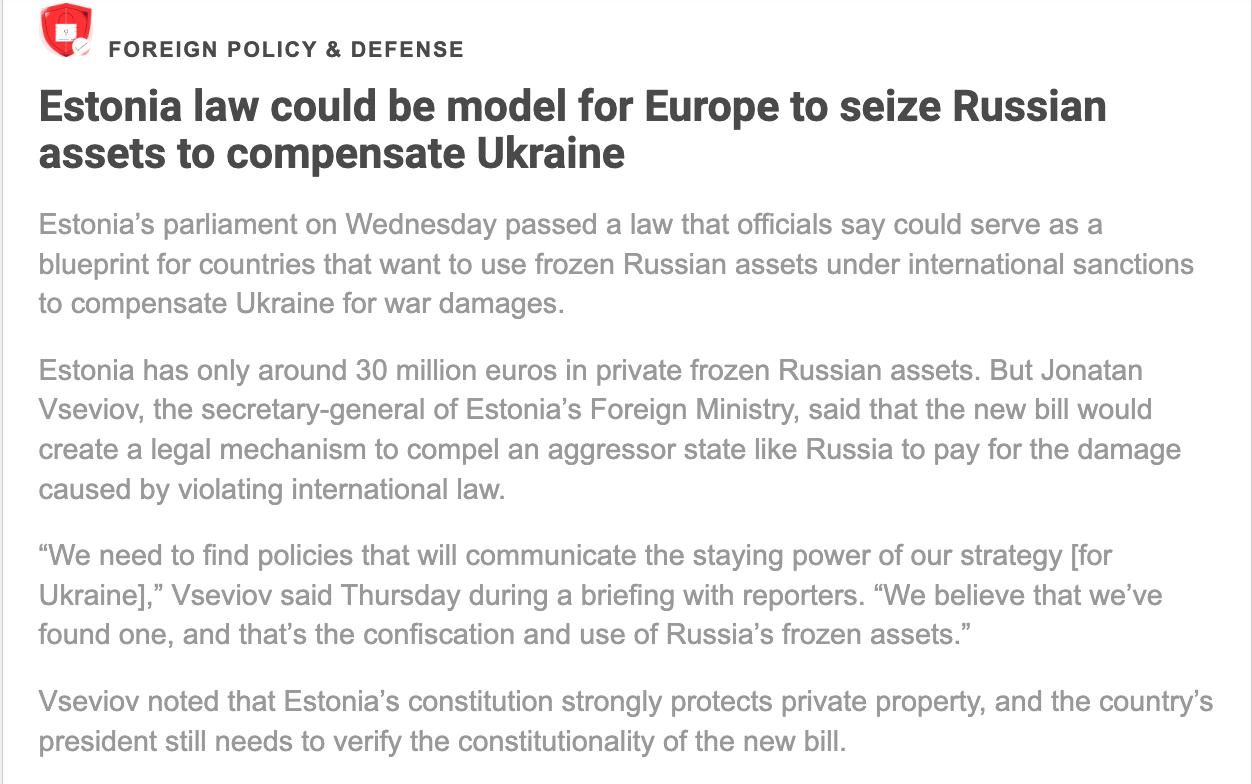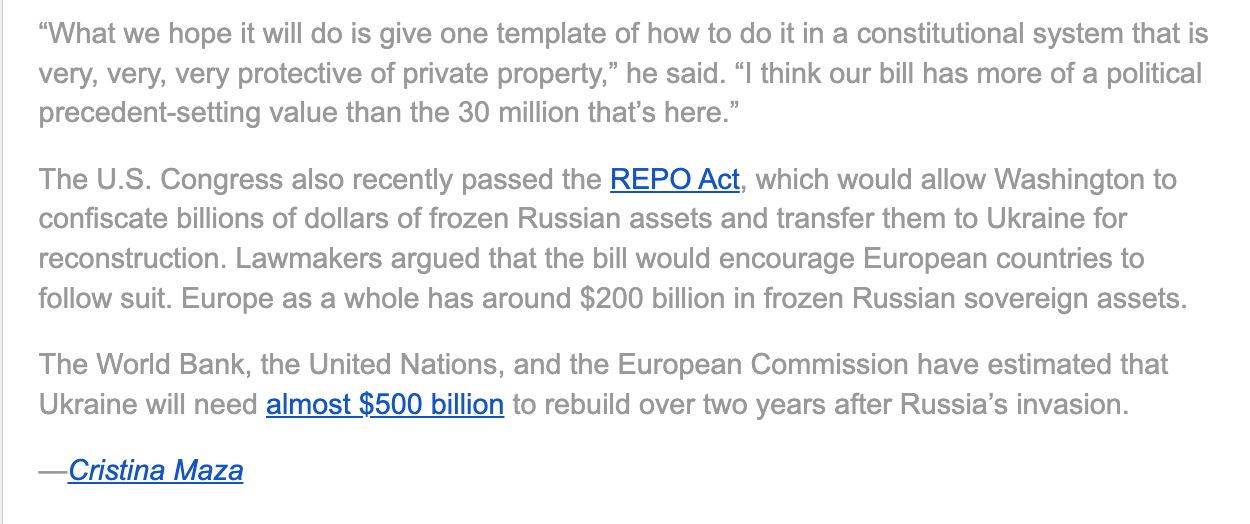I'm probably sailing to Finland now.
Greetings, once again, from Estonia, where I spent the weekend talking about international security at the annual Lennart Meri Conference and running around my favorite part of Tallinn, Telliskivi. A few quick shots of my surroundings:


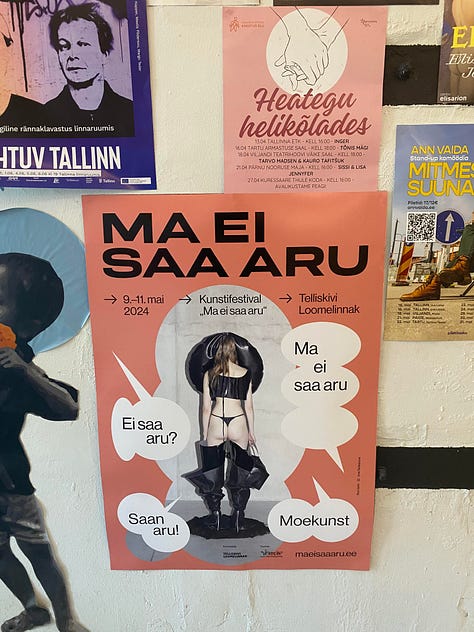
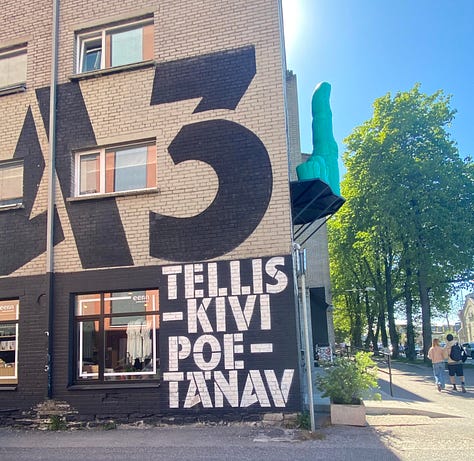
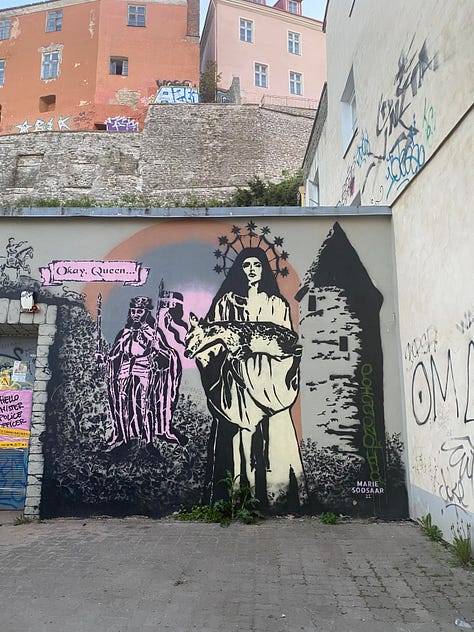

As you read this, I’m probably on a ferry from Tallinn to Helsinki, where I’ll spend 7 hours catching up with an old friend before beginning a long, circuitous (i.e. less expensive) journey back to the U.S. tomorrow.
I’ve got a ton of reporting material that will be transformed into stories over the next several weeks, hopefully before I head back to Europe for another reporting trip. But for now, I have one news blurb for you.
Until next week, Cristina
My weekly news blurbs:
What I’m reading:
• Slovak Prime Minister Robert Fico is in a stable but serious condition after being shot several times, Politico Europe reports.
• Russian President Vladimir Putin replaced his defense minister and close ally Sergei Shoigu with a civilian economist, the BBC reports.
• The head of personnel at Russia’s defense ministry was arrested on suspicion of bribery, Reuters reports. The arrest of Yuri Kuznetsov signals an expansion of the biggest government corruption scandal in years and follows Russian President Vladimir Putin unexpectedly removing Sergei Shoigu as defense minister.
• Russian President Vladimir Putin said in an interview that he supported China’s plan for a peaceful Ukraine war settlement, saying Beijing fully understood what lay behind the crisis. Reuters has the write-up.
• Ukraine’s neighbor Moldova is stepping up defense cooperation with the European Union, which will likely antagonize Russia, the Financial Times reports.
• Tens of thousands of people took to the streets of Georgia’s capital over the weekend to protest a contentious law to crack down on “foreign agents,” the Washington Post reports.
• Amy MacKinnon writes for Foreign Policy that the new law in Georgia will be “the death knell of a once-promising young democracy and drive the country firmly into Moscow’s orbit.”
• Young Georgians have vowed to keep defying their increasingly violent government with mass protests and strikes, the Guardian reports.
• Incumbent Gitanas Nausėda came first in Lithuania’s presidential election, winning 44 percent of the vote but falling short of an absolute majority). He’ll come up against Ingrida Šimonytė in the runoff election on May 26. Reuters write-up here.
• Journalists in Croatia are facing a wave of attacks and violent threats from supporters of the far-right party that just won power in a new coalition government, Politico Europe reports.
• A German high court ruled that domestic security services could continue to treat the far-right Alternative for Germany (AfD) as a potentially extremist party, Reuters reports.
• A German court found Björn Höcke of the far-right Alternative for Germany party (AfD) guilty of using a banned Nazi slogan during a campaign speech in 2021, the New York Times reports.
• In an excerpt from his new book Look Away, published in the Dial, Jacob Kushner examines how Germany’s informant apparatus has been unable to squash — and sometimes assisted in the growth of — far-right radicalism.
• The Socialists of Spanish Prime Minister Pedro Sánchez won Catalonia’s regional election as pro-independence parties lost ground, the BBC reports.
• While the result appears to boost Sánchez and rebuke those who dream of breaking away from Spain, Politico Europe reports that it could still cause problems in Madrid if the separatist grouping led by Carles Puigdemont follows through on threats to trigger a collapse of Sánchez’s government.
• Spain refused permission for a ship carrying arms to Israel to dock at a Spanish port, the Guardian reports.
• A curfew was imposed amid protests in the semi-autonomous French territory of New Caledonia, the New York Times reports.
• French Interior Minister Gérald Darmanin said Azerbaijan has actively supported the violence in New Caledonia, Politico Europe reports.
• Four right-wing parties in the Netherlands reached a deal to form a government, the BBC reports. The breakthrough agreement comes after six months of negotiations and would exclude populist politician Geert Wilders from becoming prime minister.
• Nearly 360,000 Palestinians fled Rafah in the week since Israel ordered civilians in the city to evacuate, the U.N. Agency for Palestinian Refugees (UNRWA) said.
• The State Department issued a report to Congress raising “substantial questions” about Israel’s efforts to protect civilians in Gaza.
• A right-wing Israeli group blocked and vandalized a convoy of aid trucks bound for Gaza, the BBC reports. The group, Tzav 9, said it planned the blockage.
• Israeli forces should “get out of Gaza,” Secretary of State Antony Blinken told CBS Face the Nation.
• U.S. threats caused the rupture of military ties with Niger, Prime Minister Ali Mahaman Lamine Zeine has said. Blaming Washington for the deterioration of bilateral ties, Zeine said U.S. officials tried to dictate which countries Niger could partner with and failed to justify their troop presence in the West African country. The Washington Post has the story.
• The Biden administration launched a new, expedited asylum system for people who have recently crossed the U.S.-Mexico border and are headed to one of five major U.S. cities, Axios reports.
You can write to me for any reason: c.maza@protonmail.com





